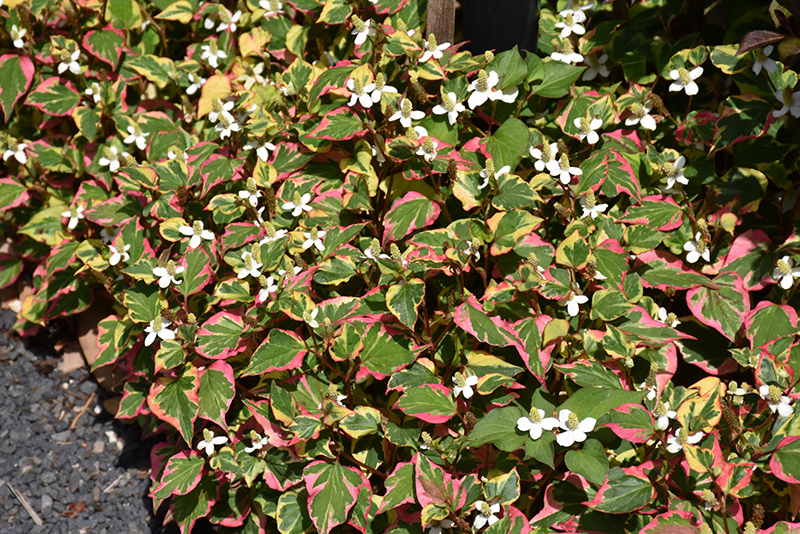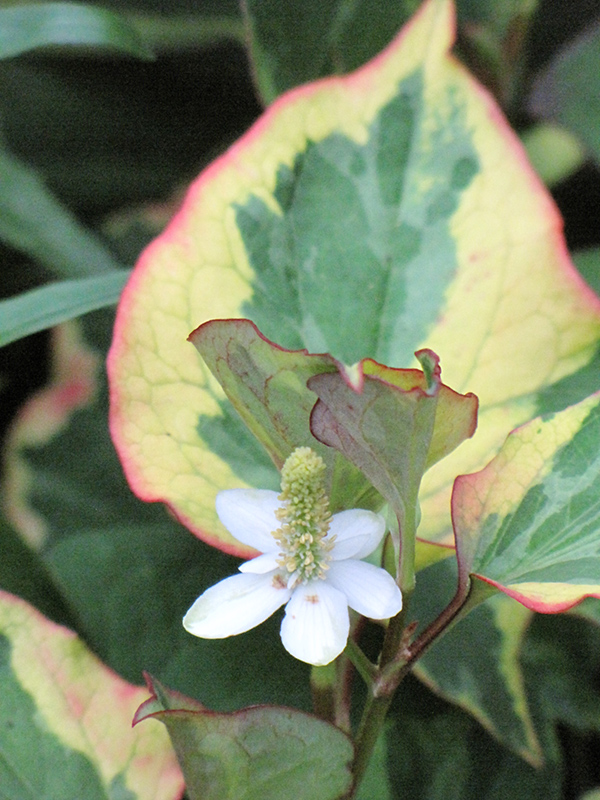Plant Library
Chameleon Houttuynia
Houttuynia cordata 'Chameleon'
Height: 12 inches
Spacing: 32 inches
Sunlight:
![]()
![]()
![]()
Hardiness Zone: 4a
Other Names: Chameleon Plant, syn. H. Variegata, H. Tricolor
Brand: Monrovia
Description:
An excellent, quick spreading groundcover featuring heart shaped, multi-colored leaves; best color in full sun
Ornamental Features
Chameleon Houttuynia's attractive heart-shaped leaves remain dark green in color with showy buttery yellow variegation and tinges of rose throughout the season on a plant with a spreading habit of growth. It features subtle spikes of chartreuse flowers with white bracts in late spring.
Landscape Attributes
Chameleon Houttuynia is a dense herbaceous perennial with a ground-hugging habit of growth. Its medium texture blends into the garden, but can always be balanced by a couple of finer or coarser plants for an effective composition.
This is a high maintenance plant that will require regular care and upkeep, and can be pruned at anytime. Gardeners should be aware of the following characteristic(s) that may warrant special consideration;
- Invasive
Chameleon Houttuynia is recommended for the following landscape applications;
- Groundcover
- Bog Gardens
Planting & Growing
Chameleon Houttuynia will grow to be about 12 inches tall at maturity, with a spread of 3 feet. When grown in masses or used as a bedding plant, individual plants should be spaced approximately 32 inches apart. Its foliage tends to remain dense right to the ground, not requiring facer plants in front. It grows at a fast rate, and under ideal conditions can be expected to live for approximately 10 years. As an herbaceous perennial, this plant will usually die back to the crown each winter, and will regrow from the base each spring. Be careful not to disturb the crown in late winter when it may not be readily seen!
This plant performs well in both full sun and full shade. It is quite adaptable, prefering to grow in average to wet conditions, and will even tolerate some standing water. It is not particular as to soil type or pH. It is highly tolerant of urban pollution and will even thrive in inner city environments. This is a selected variety of a species not originally from North America. It can be propagated by division; however, as a cultivated variety, be aware that it may be subject to certain restrictions or prohibitions on propagation.






